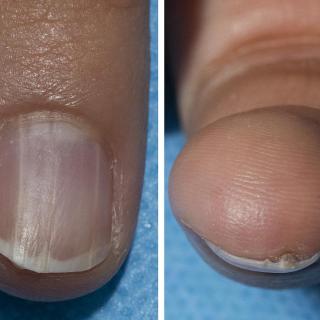News and Events
Celebrating CCR Careers: Steven Z. Pavletic, M.D., Ph.D.
Steven Z. Pavletic, M.D., Ph.D., is a renowned expert in chronic graft-versus-host disease, a serious late complication that can happen after allogeneic bone marrow transplants. After serving at the NCI for over 20 years, he is now announcing his retirement.
Read MoreCelebrating CCR Careers: Glenn Merlino, Ph.D.
Since first arriving at NCI in 1980, Glenn Merlino, Ph.D., has had a keen interest in unraveling the mechanistic underpinnings of cancer and how this knowledge could be used to improve patient care. Now, after decades of impactful research and mentorship, he is announcing his retirement.
Read MorePeter Pinto awarded the AAGUS Barringer Medal
Peter A. Pinto, M.D., Senior Investigator in the Urologic Oncology Branch, was awarded the Barringer Medal by the American Association of Genitourinary Surgeons (AAGUS). The AAGUS is an association of leading academic urologists from the United States, Canada and around the world, dedicated to the study of diseases of the genitourinary system.
Read MoreClinical trial researching immunotherapy for bladder cancer
A trial led by Andrea B. Apolo, M.D., Senior Investigator in the Genitourinary Malignancies Branch, is studying combination drug therapy and immunotherapy for bladder and urinary tract cancer.
Read MoreNIH scientists develop AI tool to predict how cancer patients will respond to immunotherapy
In a proof-of-concept study, CCR researchers developed an artificial intelligence (AI) tool that uses routine clinical data to predict whether someone’s cancer will respond to immune checkpoint inhibitors. The machine-learning model may help doctors determine if these immunotherapy drugs are effective for treating a patient’s cancer. The study, published June 3, 2024, in Nature Cancer, was led by Eytan Ruppin, M.D., Ph.D., Chief of the Cancer Data Science Laboratory, and collaborators at Memorial Sloan Kettering Cancer Center in New York.
Read MoreClinical trial researching combination immunotherapy for colorectal cancer
A trial led by Jason M. Redman, M.D., Assistant Research Physician in the Center for Immuno-Oncology, is studying combination immunotherapy for colorectal cancer.
Read MoreCelebrating CCR Careers: David D. Roberts, Ph.D.
David D. Roberts, Ph.D., a biochemist who identified a new pathway that controls cell responses to stress and developed approaches to improve cancer therapy by shutting it down, announces his retirement from the NCI.
Read MoreClinical trial researching drug therapy for neuroendocrine neoplasms
A trial led by Jaydira Del Rivero, M.D., Associate Research Physician in the Developmental Therapeutics Branch, is studying a new drug for neuroendocrine neoplasms, a group of rare cancers.
Read MoreMaster regulators flip the switch on neuroblastoma’s developmental state
Waves of regulatory changes can transform self-renewing neuroblastoma cells into neurons.
Read MoreBenign nail condition linked to rare syndrome that greatly increases cancer risk
Researchers from CCR and the National Institute of Arthritis and Musculoskeletal and Skin Diseases (NIAMS) discovered the presence of a benign nail abnormality may lead to the diagnosis of a rare inherited disorder that increases the risk of developing cancerous tumors. The study suggests conducting nail evaluation of affected patients and at-risk family members.
Read MoreNew AI tool classifies brain tumors using images of tumor slides
A new artificial intelligence model has been found to be highly effective at identifying brain tumor subtypes — with 95% accuracy — simply by analyzing a standard pathology image of the tumor tissue.
Read More






